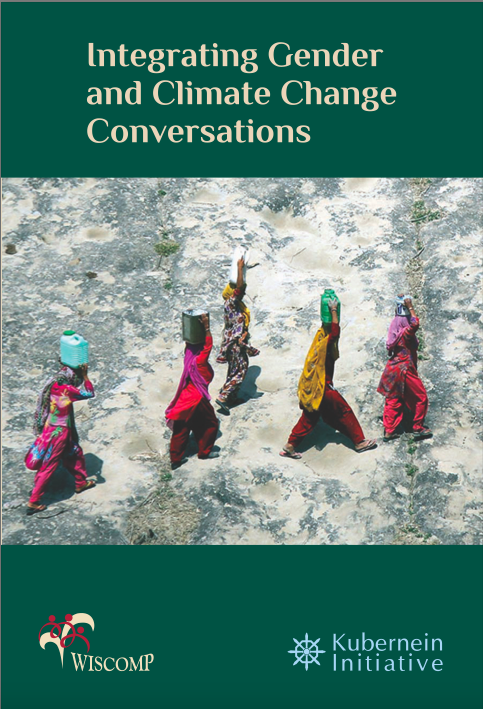Progress report for
Urban Water Security in India & Advancing Transboundary Water & Climate Cooperation in South Asia

Achievement at a glance
The conference and the outcome of our initiative on Integrating Gender and Climate Change Conversations, has brought together stakeholders and experts from different sectors and sections to collaboratively think about gender and climate change holistically and advance the integration of gender into India’s climate policies and actions. The outcome report extensively analyses India’s current climate policies and their status of gender integration and provides key recommendations and way forward for mainstreaming gender. Our work has been focusing on 4 key areas where immediate interventions are possible:1. Advance Systemic Change and greater access to knowledge - by prioritizing inclusive initiatives that provide access to knowledge and empower communities with information and resources.
2. Gender-Disaggregated data - collect and analyze gender-disaggregated data to develop targeted strategies addressing the distinct needs and vulnerabilities of women, men, and gender diverse individuals in our climate change initiatives.
3. Finance & gender-budgeting - integrate gender-budgeting practices into financial planning to allocate resources effectively, addressing the gendered impacts of climate change and fostering equitable and sustainable development, leaving no one behind.
4. Bottom up-approach Integrating active citizens and community led initiatives - prioritize community participation, tap into local knowledge, and foster ownership of climate change initiatives, empowering individuals and communities to contribute to meaningful and transformative change.
Link: https://kuberneininitiative.com/wp-content/uploads/2023/05/Gender-and-Climate-change-Report.pdf
Next Steps
The next steps for our initiative involve further research and engagement with stakeholders to promote the adoption and implementation of our policy recommendations in different cities of India. We will be engaging with urban policymakers, researchers, and stakeholders to raise awareness of our work and promote the adoption of our policy recommendations. We will also be working with local communities to promote community-centered approaches to climate resilience, and to ensure that our policy recommendations reflect the needs and perspectives of marginalized communities.Beneficiaries
The beneficiaries of our initiative include urban policymakers, researchers, gender experts, climate change experts, marginalized communties and stakeholders who are working to promote, integrate and mainstream gender and climate change into policy action. Our work is particularly relevant for women and girls in marginalized communities that are most disproportionately impacted by climate change and further by lack of participation in decision-making.
Actions
As we strive to achieve our goals of promoting gender equality and addressing the challenges of climate change, we remain dedicated to fostering systemic change, and bringing policy attention to collecting gender-disaggregated data, integrating gender-budgeting practices, adopting a bottom-up approach, and actively involving communities in climate change policy making as well as projects. By implementing these actions, we aim to enable a gender-just climate future for all.To achieve our goals, we will be taking the following actions:
1. Engage with stakeholders to raise awareness of our policy recommendations and promote their adoption and implementation.
2. Promote community-centered approaches to gender and climate resilience and engage local communities in climate policy making and actions.
3. Promote the adoption of gender-responsive policies at both national and city level that recognize the unique needs and perspectives of women and girls.
4. Advocate for policies that integrate climate adaptation and resilience into urban planning and development and prioritize the protection of vulnerable communities and ecosystems.
